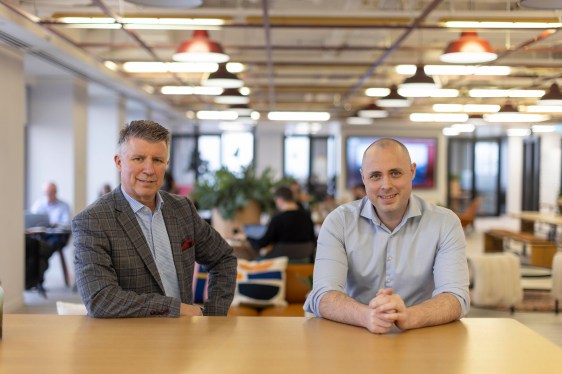The integration of Artificial Intelligence (AI) in various industries has been a double-edged sword. On one hand, companies can reap the benefits of increased productivity and efficiency. On the other hand, they are exposed to new security risks that can be detrimental to their business and clients.
The Rise of "Security for AI" Startups
In response to these emerging threats, a new wave of startups has emerged with a focus on "security for AI". These companies aim to provide solutions that address the unique vulnerabilities associated with AI systems. One such startup is Mindgard, a British university spinoff that offers a Dynamic Application Security Testing for AI (DAST-AI) solution.
Understanding the Threats
Mindgard’s CEO and CTO, Professor Peter Garraghan, explains that the threats to AI systems are not new but rather an extension of traditional cyber risks. "AI is still software, so all the cyber risks that you probably heard about also apply to AI," he said in an interview with TechCrunch. However, the opaque nature and intrinsically random behavior of neural networks and systems make them more susceptible to attacks.
Mindgard’s Approach
To address these threats, Mindgard has developed a DAST-AI solution that targets vulnerabilities that can only be detected during runtime. This involves continuous and automated red teaming, a method of simulating attacks based on the company’s threat library. For instance, its technology can test the robustness of image classifiers against adversarial inputs.
The Importance of Continuous Learning
Professor Garraghan’s background as a professor and researcher focused on AI security has been instrumental in developing Mindgard’s technology. As he notes, "the field is fast evolving — ChatGPT didn’t exist when I entered it, but I sensed that NLP and image models could face new threats."
To stay ahead of the curve, Mindgard has established ongoing ties with Lancaster University, which will provide access to the work of 18 additional doctorate researchers for the next few years. "There’s no company in the world that gets a deal like this," Garraghan said.
A Commercial Product
While Mindgard is rooted in research, it has already become a commercial product, offering a SaaS platform that caters to enterprises, traditional red teamers and pen testers, as well as AI startups. Its co-founder Steve Street leads the charge as COO and CRO, with Professor Garraghan serving as CEO.
Funding Round
Mindgard recently secured an $8 million funding round led by Boston-based .406 Ventures, with participation from Atlantic Bridge, WillowTree Investments, and existing investors IQ Capital and Lakestar. This influx of capital will help the company build its team, develop its product, and expand into new markets.
Expansion Plans
With a headcount of 15, Mindgard plans to grow to 20-25 people by the end of next year, with a focus on maintaining its London-based R&D and engineering teams. As Garraghan notes, "AI security is not even in its heyday yet," but when it does become more widespread, Mindgard will be ready.
The Vision
Professor Garraghan’s vision for Mindgard is clear: to provide solutions that address the unique vulnerabilities associated with AI systems. With its DAST-AI solution and ongoing research partnerships, the company is well-positioned to capitalize on this growing market.
Timeline
- 2023: Mindgard secures an $8 million funding round led by .406 Ventures.
- 2024: The company expands its team to 20-25 people, with a focus on maintaining its London-based R&D and engineering teams.
Key Players
- Professor Peter Garraghan – CEO and CTO of Mindgard
- Steve Street – COO and CRO of Mindgard




